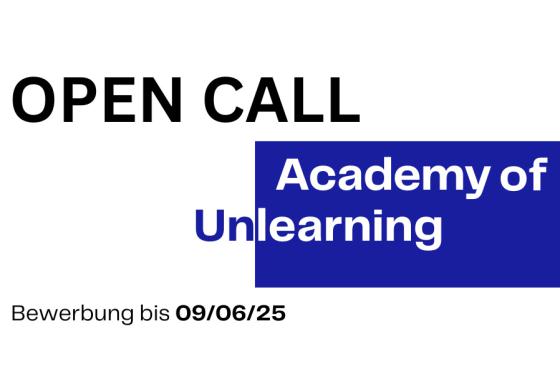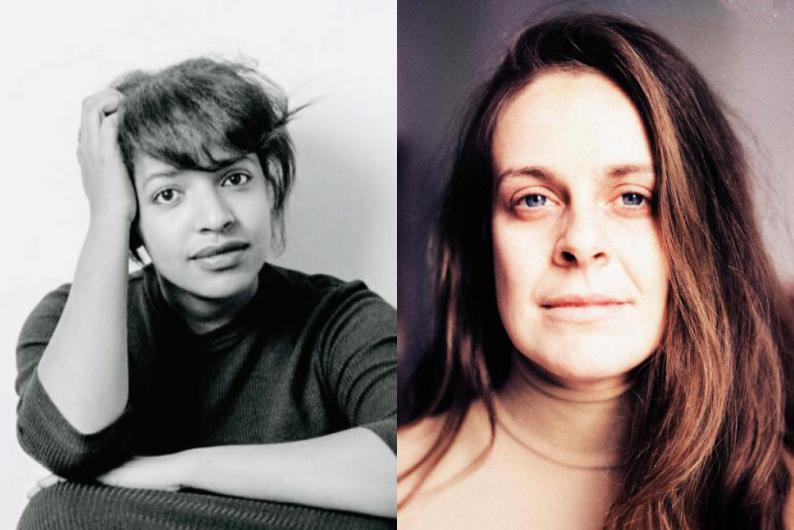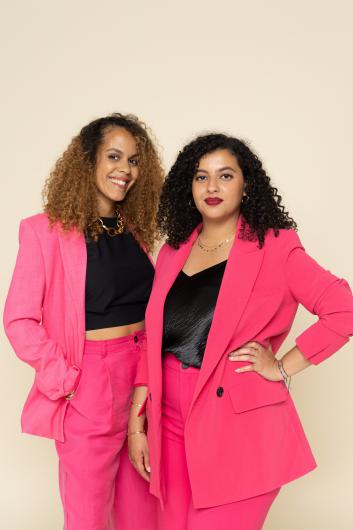Cleidy Acevedo
QUIET EMOTIONS? FREE YOUR MENTAL LOAD
Panel talk and Workshop on mental load, by FLINTA* for FLINTA* and BiPOC
This workshop on mental load provides brief impulses, space for discourse and practical input for all participants – encouraging them to stop being quiet and isolated and join up in giving the unsaid a voice. This is an opportunity to share views on what moves us deeply but is often difficult to put into words; what is often only thought and not said. It is the aim of the workshop to demonstrate that we are not alone with such feelings and conditions. Here, you may be heard and seen. And finally, be loud!
Info: Participants are asked to bring comfortable clothing and a water bottle.
Quiet Emotions offers a brave space on mental load for FLINTA* and BiPOC. The event is especially directed towards cultural workers, young professionals and first-time employees, but also to those who switch a lot between several jobs and projects. In a society that teaches us a lot about depression, anxiety, pressure and multiple loads within our every-day lives in theory, it is still hard to speak up as an individual. We are informed by small talk, hoping not to make a bad impression, not wanting to be a burden and the tendency to downplay fears and emotions only to turn over our worries and thoughts in one’s mind all by ourselves. What if we could instead create a space to be able to speak openly with each other? Or if we had an outlet to better handle our emotions, even to acknowledge them? Each of us has some baggage to carry, but we are not alone with these kinds of problems. Quiet Emotions invites participants to compare notes. The programme is centred around an open conversation with a moderated panel talk held by Parissima Taheri-Maynard and Farah Saad, followed by a practical part (designed by Veza Fernández). We don’t just talk about it – let’s do something to make a change.
Workshop
Cleidy Acevedo was born in the Dominican Republic and grew up in Vorarlberg. After attending the HLMW9 Michelbeuern fashion school in Vienna, she created several low-budget films and got in touch with the theatre world in productions at Volkstheater, Theater in der Josefstadt and Neue Oper Wien. Early successes as an assistant director include the shows Tod-Krank.Doc, Dänisches Sushi and PEACES (Fragments of Love). Outside the theatre, Cleidy Acevedo enjoys writing prose.
Veza Fernández is a dance, voice and performance artist based in Vienna. Her work deals with the poetics and politics of expression as a place of association, imagination and transformation. It interlaces singing, writing, dancing and speaking as physical forms of learning, experimenting and performing. Full of empathy and intensity, Fernández’s pieces are polyphonous assemblies of voices and presences craving to move and to be moved. Veza Fernández’s background ranges across the fields of philology, education, theatre, music and contemporary dance. She holds a master’s degree in choreography from the DAS Graduate School (Amsterdam Academy for Theatre and Dance). Her work has been presented, among other places, at brut Wien, Tanzquartier Wien, Sophiensæle in Berlin, Gessnerallee in Zurich, de Singel in Antwerp and La Casa Encendida in Madrid.
vezafernandez.com
Speakers panel talk
Wir sind auch Wien (We too are Vienna) is a platform for BIPoC (Black, Indigenous and People of Colour) focused on mental health and the organization of self-care events. At the core lays the exploration of histories and roots with stories of intergenerational trauma and intergenerational resilience. Wir sind auch Wien is run by Parissima Taheri-Maynard and Farah Saad, both BIPOC mental health practitioners with a dedication to holding space for safe(r) and accessible self-care, community care and empowerment for BIPoC, as well as supporting psychosocial professionals in (un)learning about the intersection of racism and mental health.
Credits
Created by and featuring Cleidy Acevedo, Veza Fernández, Parissima Taheri-Maynard and Farah Saad, brut dramaturgy/outreach
This format was created as part of the ‘Academy of Unlearning’ mentoring programme by kulturen in bewegung. The Academy of Unlearning’ mentoring programme is funded by Verein Frauen helfen Frauen helfen, the Austrian Development Agency and the City of Vienna’s Department of Cultural Affairs.
Dates & Tickets
Participants are asked to bring comfortable clothing and a water bottle.
There is an opportunity to see the show The Last Feminist by Myassa Kraitt at 8:00 pm on the same day. A separate ticket is required
October 2024
Pay as you can on site / Please register via the ticket button
brut nordwest
Nordwestbahnstraße 8-10, 1200 Vienna
accessible
Event recommendations
Myassa Kraitt
The Last Feminist
Charlotta Ruth
Choreographic Traces and Chain Creations
Magazin

Open Call – Academy of Unlearning
brut all over Vienna
brut nordwest
accessible
Nordwestbahnstraße 8-10, 1200 Vienna
Subway: U1, U2 (Praterstern), U4 (Friedensbrücke), U6 (Dresdnerstraße) Tram: 5 (Nordwestbahnstraße) Bus: 5A (Wasnergasse)
accessible
studio brut
not accessible
Zieglergasse 25, 1070 Wien
Subway: U3 (Zieglergasse), Tram: 49 (Westbahnstraße / Zieglergasse)
not accessible
Bears in the Park Art Place
not accessible
Eyzinggasse 12, 1110 Vienna
U-Bahn: U3 (Gasometer) Bus: 72A (Gasometer), 76A, 76B (Simoningplatz)
not accessible
WUK performing arts
barrierefrei
Währinger Straße 59, 1090 Vienna
Subway: U6 (Währinger Straße / Volksoper), Tram: 40, 41, 42 (Währinger Straße / Volksoper), 5, 33 (Spitalgasse), 37, 38, 40, 41, 42 (Spitalgasse / Währinger Straße)
Der Betrieb
accessible
Vogelweidplatz 13, 1150 Wien
Subway: U6 (Burggasse-Stadthalle) / Bus: 48A (Moeringgasse) / Tram: 9 (Camillo Sitte Gasse)









